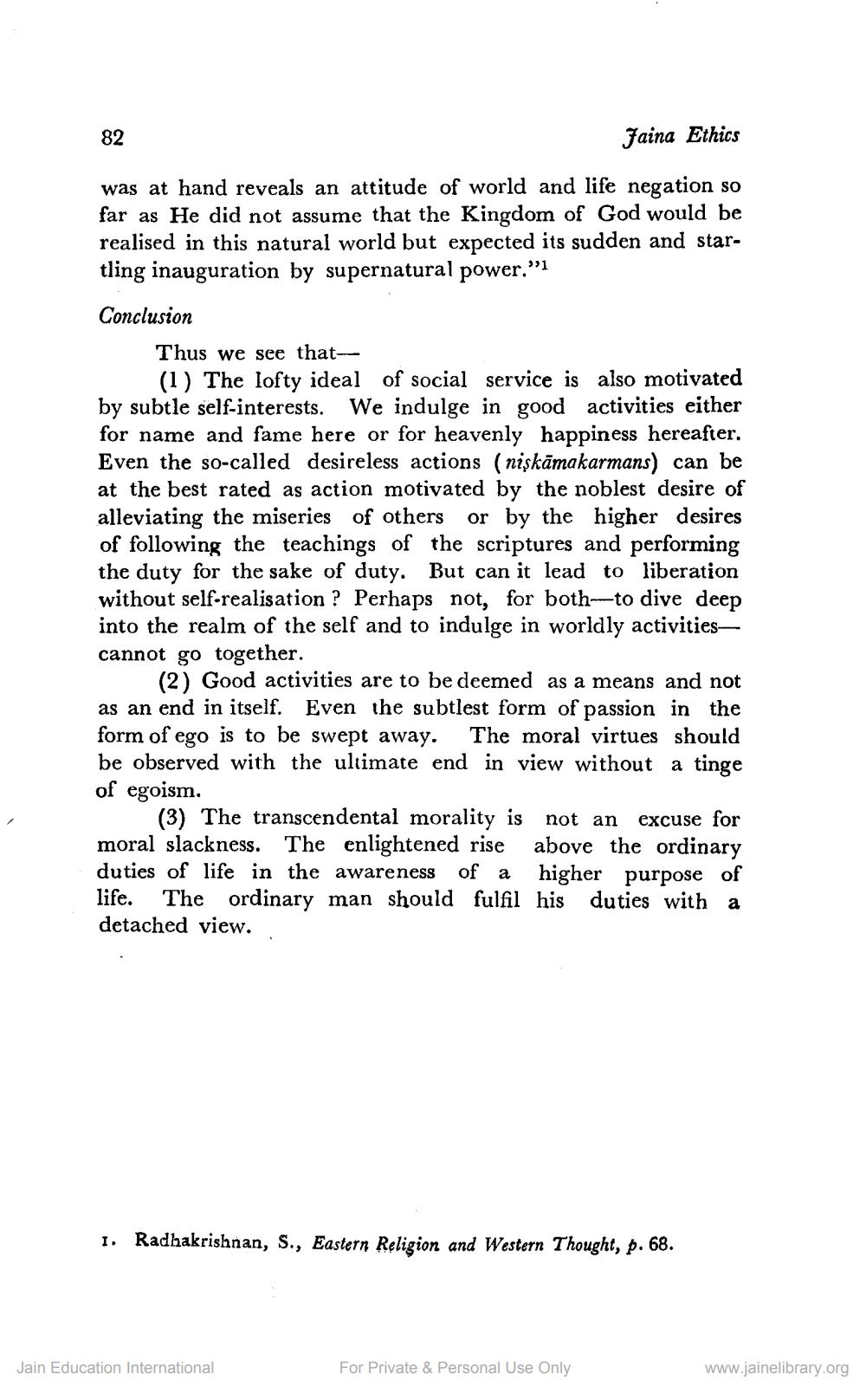________________
82
Jaina Ethics
was at hand reveals an attitude of world and life negation so far as He did not assume that the Kingdom of God would be realised in this natural world but expected its sudden and startling inauguration by supernatural power."l Conclusion
Thus we see that
(1) The lofty ideal of social service is also motivated by subtle self-interests. We indulge in good activities either for name and fame here or for heavenly happiness hereafter. Even the so-called desireless actions (niskāmakarmans) can be at the best rated as action motivated by the noblest desire of alleviating the miseries of others or by the higher desires of following the teachings of the scriptures and performing the duty for the sake of duty. But can it lead to liberation without self-realisation ? Perhaps not, for both--to dive deep into the realm of the self and to indulge in worldly activitiescannot go together.
(2) Good activities are to be deemed as a means and not as an end in itself. Even the subtlest form of passion in the form of ego is to be swept away. The moral virtues should be observed with the ultimate end in view without a tinge of egoism.
(3) The transcendental morality is not an excuse for moral slackness. The enlightened rise above the ordinary duties of life in the awareness of a higher purpose of life. The ordinary man should fulfil his duties with a detached view.
1. Radhakrishnan, S., Eastern Religion and Western Thought, p. 68.
Jain Education International
For Private & Personal Use Only
www.jainelibrary.org




